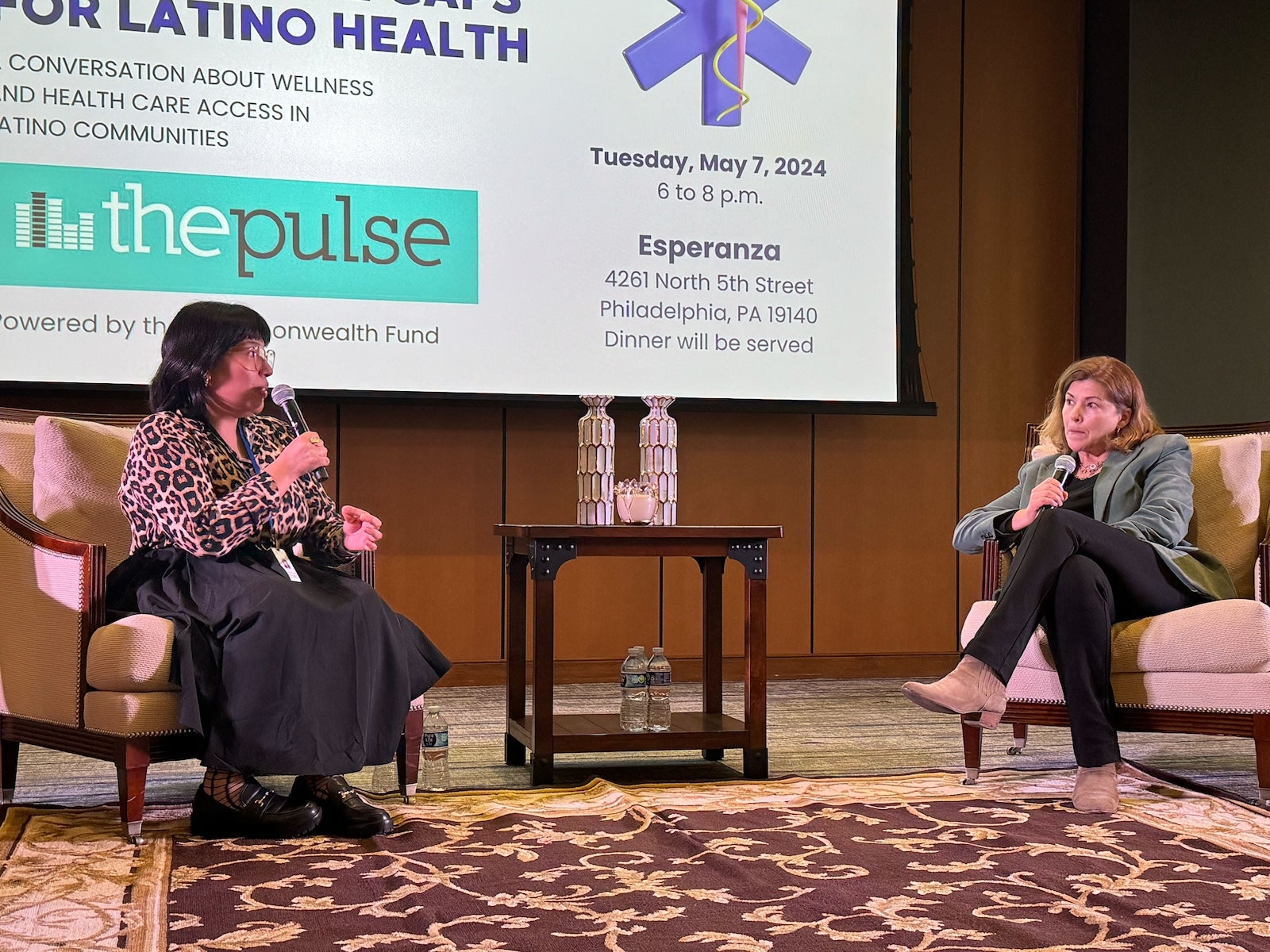Gun violence, lack of tree canopy and chronic disease are major public health issues facing Latinos
Through their conversation, Scott and Lieberman also touched upon preventative care — or the lack thereof. Scott queried: If some Latino communities in Philadelphia are without an urgent care or a primary care physician, how can people get adequate access to colonoscopies or mammograms?
Lieberman said it becomes a game of “balancing and acrobatics” to find the right care. She said she has seen a wide array of health issues facing her community, including gun violence, trauma and issues related to the built environment.
“We don’t have as many trees,” Lieberman said. “We don’t have as many green spaces here. This neighborhood is very industrial. It was not meant for residents. And so there’s a lot of lots and businesses and empty lots and junk yards. And so when the summer comes around, the heat in this neighborhood is unbearable.”
From heat exhaustion to heat stroke, Lieberman worries about the effects a lack of green space has on public health in an area with extremely high rates of childhood asthma.
“We have higher rates of those chronic diseases here and I think you know part of that is not having the safe and green spaces that families need to exercise,” she said. “ And so, all of these are tied together, right? They’re tied together by these social determinants of health.”
Health outcomes are determined before someone steps foot in a doctor’s office
Scott picked up where Lieberman left off — a journey of health that starts far before someone gets sick.
“We’re talking really about the environment in which we grow up, in which we live, that contributes to us having that opportunity to be healthy,” Scott said.
Lieberman agreed.
“When your body manifests illness, it manifests it because of all these different factors that are so much bigger than health care or what’s happening in the doctor’s office,” she said. “It’s really everything that happened to you before you got to the doctor’s office.”
“Big factors” such as discrimination, environmental racism, housing, poverty and voter suppression all have an impact on public health, Lieberman said.
“Sometimes, even when we go to the doctor and we get the help that we need in that moment — we go right back out into the world that really hasn’t changed very much,” she said.
Health care is a “short game” that requires immediate attention, she said, but there also exists a “long-term game” where the social determinants of health must be addressed to knock down the financial and structural barriers facing Latino communities.
“What’s really the measure of success? I think in the future it’s that this community no longer needs someone like me here — at all,” Lieberman said. “I’m here because the community has not yet been awakened to its own power to advocate for its health.”

